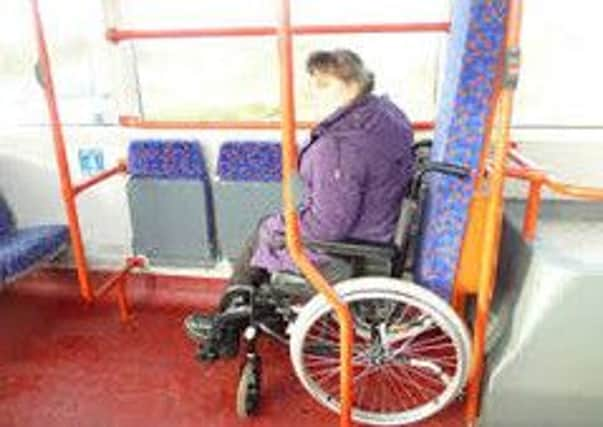Wheelchair users ‘often left behind by bus drivers’


Most of the 179 wheelchair users surveyed by Leonard Cheshire Disability have been refused a space on a bus while others are turned away when buses are busy.
Two-thirds said they had been refused a space because buses had no ramps, or ramps that were not working.
Advertisement
Hide AdAdvertisement
Hide AdThe survey also found that 61 per cent of people felt the biggest problem they faced was pushchairs being put in the wider spaces on a bus.
Half of people said they had experienced rudeness or intimidation from a bus driver, while 47 per cent had experienced this from other passengers. Some 18 per cent of disabled people in wheelchairs also said buses were too infrequent. One in 10 had problems every time they tried to get on a bus, while 43 per cent said they had problems at least every other time.
The law says reasonable adjustments should be made for wheelchair users when travelling on buses. However, there is no law to say wheelchair users must be given the wide spaces on buses or that buggies should be moved.
Leonard Cheshire Disability assessed each of the main bus companies operating in the UK and gave them a score out of 20 on issues such as disability awareness training for bus drivers, mention of wheelchair users in the conditions of carriage, use of low-floor buses and clear information on who has priority of the wheelchair space.
Advertisement
Hide AdAdvertisement
Hide AdThe results showed Go Ahead and Stagecoach were the best performing bus companies in the UK, each scoring 17 out of 20 while First Bus and Arriva both scored 14. National Express scored 10 points.
Leonard Cheshire’s chief executive Clare Pelham said: “It’s great that we have regulations coming in the next year for single decker buses and 2017 for double decker buses to make them all properly accessible for wheelchair users.
“For so many wheelchair users, the bus is their only way to get to work, to get to the doctor or simply get to the shops.
“It’s time that drivers get the training they need to do the right thing.”